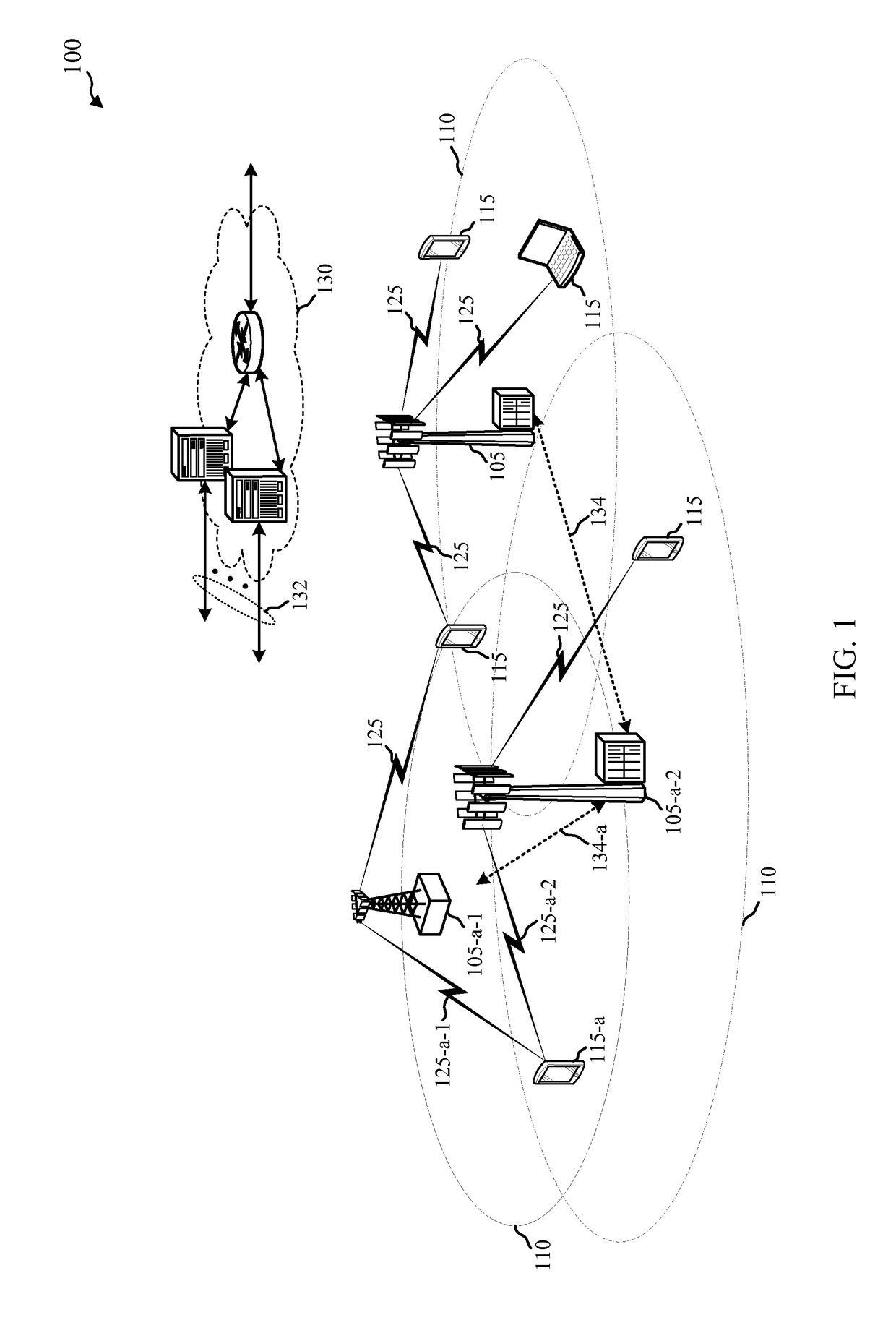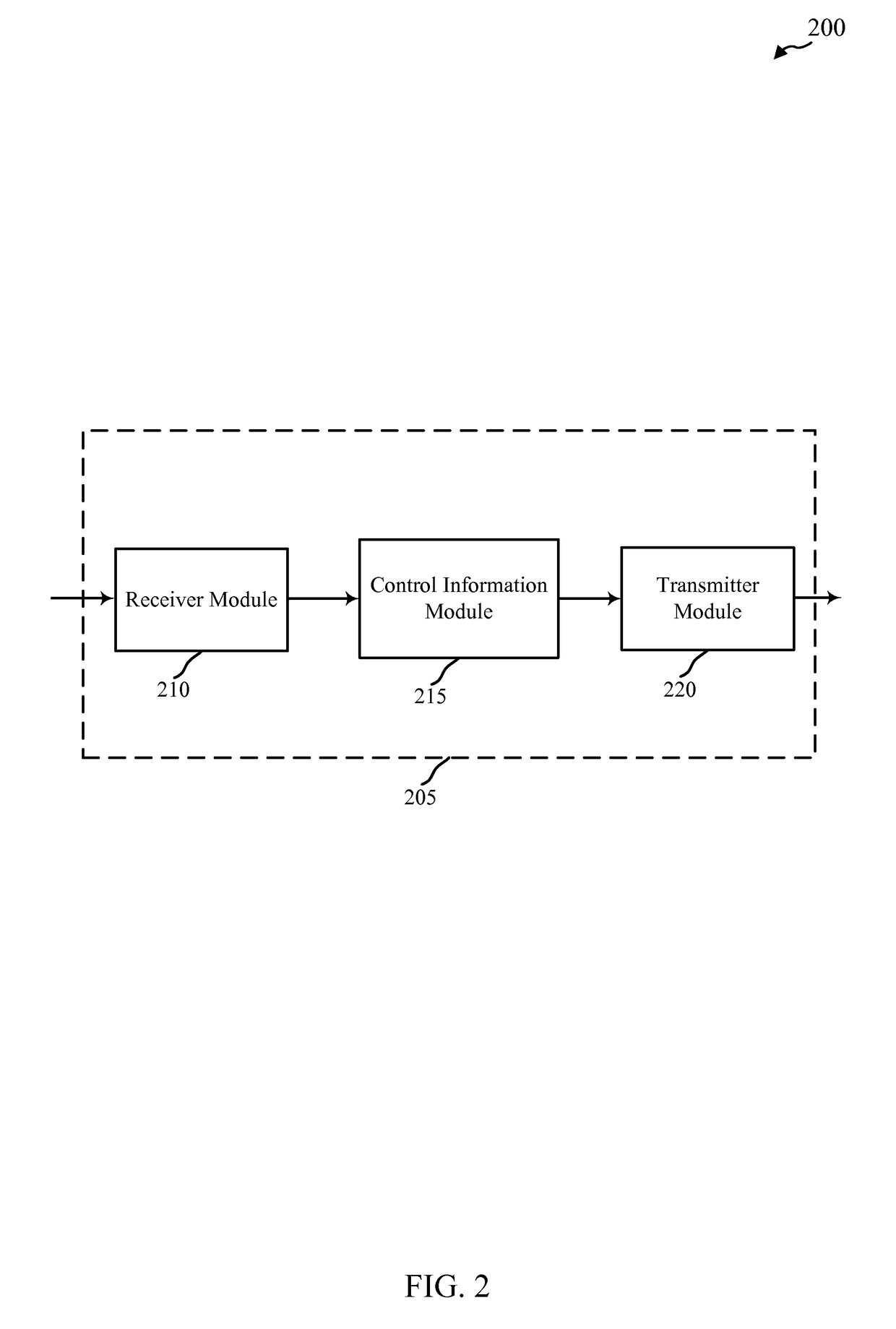Base station initiated control mechanism for supporting supplemental link
a control mechanism and base station technology, applied in the field of wireless communication systems, can solve the problems of less reliable millimeter wave communications, less resource-intensive setting up of millimeter wave communications, and frequent experience high path loss, and achieve the effect of less overhead and more reliable signals
- Summary
- Abstract
- Description
- Claims
- Application Information
AI Technical Summary
Benefits of technology
Problems solved by technology
Method used
Image
Examples
Embodiment Construction
[0046]Features generally relating to a base station initiated control mechanism for supporting a supplemental link are disclosed. As described in more detail below, a first base station may be configured to communicate with a user equipment (UE) using a directional, first radio access technology (RAT), such as a millimeter wave-based RAT. Other base stations may also be configured to communicate with the UE using the same or a different RAT. For example, a second base station may be configured to communicate with the UE using a second RAT, such as a long term evolution (LTE) based RAT. In some circumstances, the first base station may identify control information that needs to be transmitted to the UE, but may be unable to transmit the control information to the UE using the first RAT or may find it undesirable to transmit the control information to the UE using the first RAT. In these circumstances, the first base station may transmit the control information to the second base stat...
PUM
 Login to View More
Login to View More Abstract
Description
Claims
Application Information
 Login to View More
Login to View More - R&D
- Intellectual Property
- Life Sciences
- Materials
- Tech Scout
- Unparalleled Data Quality
- Higher Quality Content
- 60% Fewer Hallucinations
Browse by: Latest US Patents, China's latest patents, Technical Efficacy Thesaurus, Application Domain, Technology Topic, Popular Technical Reports.
© 2025 PatSnap. All rights reserved.Legal|Privacy policy|Modern Slavery Act Transparency Statement|Sitemap|About US| Contact US: help@patsnap.com



